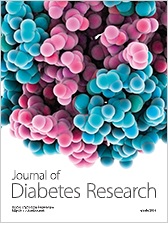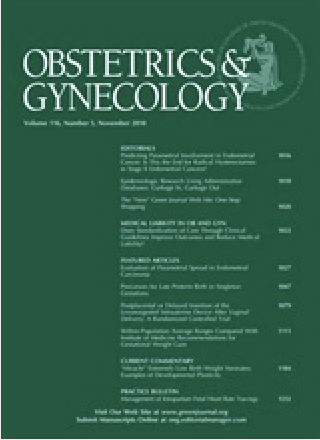Gestational Diabetes
How to submit an article:
- Registered users can submit any published journal article that has a unique DOI (Digital Object Identifier) name or link to Research Hub.
- For example, you can paste the full DOI link:
https://doi.org/10.1109/5.771073or just the DOI name:10.1109/5.771073into the field above and click submit. - The person who is first to submit a valid article to Research Hub will forever be credited for it, and every article submission earns you +6 Research Points.
Published research studies are articles that present the findings of original research that has undergone a peer-review process and has been made publicly available in scholarly journals, books or other media.
The effect of oat bran consumption on gestational diabetes: a randomized controlled clinical trial
2021 Apr 13 BMC Endocrine Disorders Barati Z, Iravani M, Karandish M, Haghighizadeh MH, Masihi S
Randomised Controlled Trial Gestational Diabetes OatsAdding oat bran to the diet of pregnant women with gestational diabetes can help significantly reduce their fasting and postprandial blood glucose levels.

Evaluating Traditional Chinese Medicine and Herbal Products for the Treatment of Gestational Diabetes Mellitus
2019 Dec 03 Journal of Diabetes Research Xu YXZ, Xi S, Qian X
Review Article Raspberry Leaf Gestational Diabetes Zuo Gui WanTraditional Chinese medicine, especially Zuo Gui Wan, red raspberry leaves, and Orthosiphon stamineus, seems to control gestational diabetes effectively without reported toxicity.

The Association of Vitamin D Levels with Common Pregnancy Complications
2018 Jul 05 Nutrients Dovnik A, Mujezinović F
Recent evidence suggests that vitamin D supplementation could be of value in reducing the risk of pregnancy complications such as gestational diabetes, preeclampsia, and preterm labour. Vitamin D supplementation in pregnancy has been clearly shown to be safe and can thus be recommended given its potential benefits.
Vitamin D
Gestational Diabetes Mellitus and Diet: A Systematic Review and Meta-analysis of Randomized Controlled Trials Examining the Impact of Modified Dietary Interventions on Maternal Glucose Control and Neonatal Birth Weight
2018 Jun 14 Diabetes Care Yamamoto JM, Kellett JE, Balsells M, García-Patterson A, Hadar E, Solà I, et al.
Modified dietary interventions favorably influenced outcomes related to maternal glycemia and birth weight. This indicates that there is room for improvement in usual dietary advice for women with GDM.
Systematic Review Meta-Analysis Neonatal Birth Weight Gestational Diabetes
Raspberry Leaf and Hypoglycemia in Gestational Diabetes Mellitus
2016 Dec Obstetrics & Gynecology Cheang KI, Nguyen TT, Karjane NW, Salley KES
Case Report Raspberry Leaf Type 2 Diabetes Gestational Diabetes HypoglycemiaRaspberry leaf consumption may decrease insulin requirements in pregnant women with gestational diabetes mellitus.
Research insights are moderated by the Research Hub team and offer an at-a-glance overview of interesting research findings.
2021 BMC Endocrine Disorders
Adding oat bran to the diet of pregnant women with gestational diabetes can help significantly reduce their fasting and postprandial blood glucose levels.
Randomised Controlled Trial Oats
The effect of oat bran consumption on gestational diabetes: a randomized controlled clinical trial
Barati Z, Iravani M, Karandish M, Haghighizadeh MH, Masihi S

2019 Journal of Diabetes Research
Traditional Chinese medicine, especially Zuo Gui Wan, red raspberry leaves, and Orthosiphon stamineus, seems to control gestational diabetes effectively without reported toxicity.
Review Article Raspberry Leaf Zuo Gui Wan
Evaluating Traditional Chinese Medicine and Herbal Products for the Treatment of Gestational Diabetes Mellitus
Xu YXZ, Xi S, Qian X

2016 Obstetrics & Gynecology
Raspberry leaf consumption may decrease insulin requirements in pregnant women with gestational diabetes mellitus.
Case Report Hypoglycemia Raspberry Leaf Type 2 Diabetes
Raspberry Leaf and Hypoglycemia in Gestational Diabetes Mellitus
Cheang KI, Nguyen TT, Karjane NW, Salley KES
Review Articles
Review articles summarise and critically evaluate the current state of research on a specific topic or field by synthesising multiple primary research studies.

Evaluating Traditional Chinese Medicine and Herbal Products for the Treatment of Gestational Diabetes Mellitus
2019 Dec 03 Journal of Diabetes Research Xu YXZ, Xi S, Qian X
Review Article Raspberry Leaf Gestational Diabetes Zuo Gui WanTraditional Chinese medicine, especially Zuo Gui Wan, red raspberry leaves, and Orthosiphon stamineus, seems to control gestational diabetes effectively without reported toxicity.

Gestational Diabetes Mellitus and Diet: A Systematic Review and Meta-analysis of Randomized Controlled Trials Examining the Impact of Modified Dietary Interventions on Maternal Glucose Control and Neonatal Birth Weight
2018 Jun 14 Diabetes Care Yamamoto JM, Kellett JE, Balsells M, García-Patterson A, Hadar E, Solà I, et al.
Modified dietary interventions favorably influenced outcomes related to maternal glycemia and birth weight. This indicates that there is room for improvement in usual dietary advice for women with GDM.
Systematic Review Meta-Analysis Neonatal Birth Weight Gestational DiabetesClinical Trials
Clinical trials are research studies that involve people and are conducted to evaluate the safety and efficacy of new treatments or interventions, such as drugs, medical devices, or behavioural therapies.
Study Protocols
Published study protocols are detailed plans that outline the objectives, methodology, statistical analyses, and organisation of a research study that have been made publicly available for others to review and use as a reference.
Presentation Slides

Randomised Controlled Trial
Adding oat bran to the diet of pregnant women with gestational diabetes can help significantly reduce their fasting and postprandial blood glucose levels.
Barati Z, Iravani M, Karandish M, Haghighizadeh MH, Masihi S

Review Article
Traditional Chinese medicine, especially Zuo Gui Wan, red raspberry leaves, and Orthosiphon stamineus, seems to control gestational diabetes effectively without reported toxicity.
Xu YXZ, Xi S, Qian X

Case Report
Raspberry leaf consumption may decrease insulin requirements in pregnant women with gestational diabetes mellitus.
Cheang KI, Nguyen TT, Karjane NW, Salley KES
Executive Summary
Write an executive summary in the form of a blog article on the topic of "Research into Chinese medicine treatment for Gestational Diabetes" summarising the research below and using language that can be easily understood by patients and avoiding medical jargon using a professional and caring tone of voice.
Write an executive summary in the form of a blog article on the topic of "Researched Chinese medicine treatments for Gestational Diabetes" summarising the research below in an objective and easy to understand way, and using language that can be easily understood by patients. Group the article into Chinese medicine treatments first, followed by nutrition and other treatments. Avoid using medical jargon and use a professional and caring tone of voice.
Write me a concise but easy to understand executive summary on the topic of "Chinese medicine treatments for Gestational Diabetes" based on the following research that I will give you. Your summary should be 2 paragraphs long in Australian English spelling and include references to the studies.
A Randomised Controlled Trial published in 2021 in the journal BMC Endocrine Disorders found that Adding oat bran to the diet of pregnant women with gestational diabetes can help significantly reduce their fasting and postprandial blood glucose levels. In the methodology of this study, a randomized clinical trial was conducted on 112 pregnant women suffering from gestational diabetes. These women were randomly split into two groups of 56. Both groups were given a diet specifically designed for managing gestational diabetes. However, the intervention group additionally received 30 grams of oat bran daily at lunch and dinner for a period of 4 weeks. The researchers performed tests on fasting blood glucose and two-hour postprandial glucose levels for both groups prior to the intervention and then at two-week intervals during the intervention. The results of the study revealed that the average blood glucose level before the intervention showed no significant differences between the two groups. However, both the mean fasting blood glucose and the two-hour postprandial glucose levels of the intervention group showed a significant decrease two and four weeks after the intervention when compared with the control group, due to the addition of oat bran in their diet.
A Review Article published in 2019 in the journal Journal of Diabetes Research found that Traditional Chinese medicine, especially Zuo Gui Wan, red raspberry leaves, and Orthosiphon stamineus, seems to control gestational diabetes effectively without reported toxicity. The study initiated a systematic search across PubMed, Web of Science, and Embase databases to pinpoint research discussing the impact of traditional Chinese medicine on pregnancy. The results were then further narrowed down to focus on any correlation with all forms of diabetes mellitus. The primary thread that emerged was the beneficial effect of three main herbal remedies: Zuo Gui Wan, red raspberry leaves, and Orthosiphon stamineus. Based off of the results from this search, a focal review of these herbal elements and their associations with type 2 diabetes mellitus was undertaken. Across the board, these remedies demonstrated positive effects on metabolic health, especially among women dealing with gestational diabetes. No experimental models reported any toxicity or harmful side effects associated with these herbal treatments. The report calls out that current studies on both conventional and alternative interventions for gestational diabetes are immensely lacking, emphasizing the need for a standardized protocol to evaluate the efficacy of these herbal medicines.
A Case Report published in 2016 in the journal Obstetrics & Gynecology found that Raspberry leaf consumption may decrease insulin requirements in pregnant women with gestational diabetes mellitus. In the methodology of this case study, a 38-year-old pregnant woman, who was diagnosed with gestational diabetes mellitus, consumed raspberry leaf tea at 32 weeks of gestation. After the ingestion of the tea, she experienced hypoglycemia that required lowering her insulin dosage. This temporal relationship was verified by her ceasing and readopting the herb. Throughout the study, there were reassuring fetal surveillance and growth, resulting in a cesarean delivery at 39 weeks. The newborn didn't have hypoglycemia or any other complications and the placental biopsy showed standard outcomes. In the discussion of the results, it was observed that raspberry leaf tea might have properties that can affect glycemic control in gestational diabetes mellitus patients. After consumption of the tea, the subject experienced hypoglycemia which necessitated a decrease in her insulin dose. Also, the re-consumption of the herb confirmed its hypoglycemic effects. Importantly, the baby was not affected by hypoglycemia or any other complications, indicating that raspberry leaf tea may be a practical alternative for managing gestational diabetes mellitus. However, it was recommended that pregnant women with such condition should be cautious about the use of the herb and monitor their glucose levels more frequently.
Moderation Tools
Topic
Sign In
Users not signed in are limited to viewing the 5 most recent items of content.